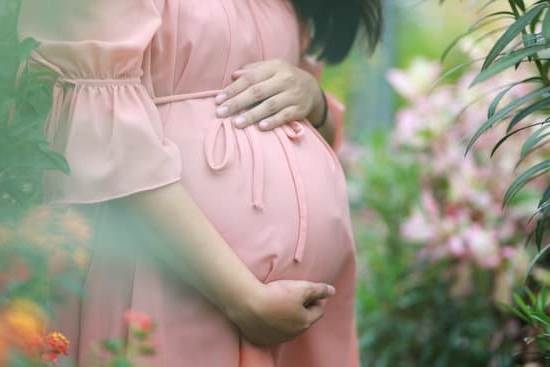What animal has the longest pregnancy? The duration of pregnancy varies greatly among different animal species, ranging from just a few weeks to several years. This fluctuation is influenced by a variety of factors, including biological, ecological, and evolutionary reasons. In this article, we will explore the remarkable differences in gestation periods across the animal kingdom and delve into the unique challenges faced by various species during their pregnancies.
The length of pregnancy in animals is a diverse and fascinating topic that offers insight into the biological processes of reproduction. From elephants to albatrosses, each species experiences its own distinct journey towards bringing new life into the world. By understanding the reasons behind varying pregnancy lengths in animals, we can gain a deeper appreciation for the incredible adaptations and strategies that have evolved over time.
Throughout this article, we will examine some of the longest pregnancies in the animal kingdom, including those of elephants, giraffes, blue whales, albatrosses, and even humans. By shedding light on these extraordinary gestation periods, we hope to offer a glimpse into the awe-inspiring diversity and complexity of reproductive biology across different species.
Elephant
The elephant holds the record for the longest pregnancy in the animal kingdom, lasting an incredible 22 months. This gestation period is almost two years long, which is significantly longer than most other mammals. The female elephant has to carry the developing fetus in her womb for such an extended period, presenting unique challenges and demands on her body.
To put this into perspective, let’s compare the elephant’s pregnancy to that of other animals. For example, the average pregnancy length for a giraffe is around 15 months, making it one of the longest pregnancies among mammals. However, it still pales in comparison to the nearly two-year gestation period of an elephant. Similarly, blue whales have a pregnancy that lasts approximately 10-12 months, which is significantly shorter than that of an elephant.
Despite its remarkable length, the elephant’s pregnancy serves a crucial purpose in ensuring the development of a healthy and robust offspring. The prolonged gestation period allows for ample time for the elephant calf’s physical and cognitive development within the womb.
This extended time frame also contributes to the elephant’s relatively low infant mortality rate compared to other species. Overall, the elephant’s incredibly long pregnancy showcases just how diverse and extraordinary reproduction can be across different animal species.
- Elephant: 22 months
- Giraffe: around 15 months
- Blue whale: 10-12 months
Giraffe
The giraffe, known for its long neck and graceful appearance, also holds the distinction of having one of the longest pregnancies in the animal kingdom. The gestation period for a giraffe typically spans between 14 to 15 months, making it one of the lengthiest among terrestrial mammals. This prolonged pregnancy presents unique challenges for both the mother and the newborn calf.
During this extended gestation period, the female giraffe must ensure that she consumes enough nutrients to support both her own body and the developing fetus. The size of the growing calf also presents physical challenges for the mother, as she must carry the increasing weight over an extended period of time. Additionally, finding a safe location to give birth becomes increasingly important as the pregnancy progresses.
The giraffe’s lengthy gestation period is necessary to allow for the proper development of the calf within the mother’s womb. This extended timeframe ensures that the newborn calf is born with fully developed organs and muscles, enabling it to survive in its challenging environment from day one. Despite these challenges, the remarkable adaptation of giraffes to their environment has allowed them to thrive and maintain their status as iconic symbols of Africa’s diverse wildlife.
Blue Whale
The blue whale, the largest animal on the planet, also holds the title for one of the longest pregnancies in the animal kingdom. The gestation period of a blue whale is truly remarkable, lasting approximately 10 to 12 months. This lengthy pregnancy period is crucial for the development of the calf inside its mother’s womb, as it needs time to grow and mature before birth.
The Impact on the Species
The extended pregnancy of a blue whale has significant implications for the species as a whole. With such a long gestation period, female blue whales can only give birth once every two to three years. This low reproductive rate means that any disruptions or threats to their environment can have serious consequences for the population.
Challenges and Adaptations
The prolonged pregnancy of a blue whale presents unique challenges for both the mother and her developing calf. As these marine mammals rely on oceanic environments for survival, factors such as climate change, pollution, and food scarcity can directly impact pregnancy length and success. However, over millions of years of evolution, blue whales have adapted to these challenges and developed specialized reproductive strategies to ensure the survival of their species.
From this perspective, we start to understand what animal has the longest pregnancy compared to others. The remarkable pregnancy length of a blue whale offers valuable insights into the intricate balance between biology, ecology, and evolution in shaping reproduction among different species in the animal kingdom.
Albatross
When discussing the topic of pregnancy length in animals, the albatross is often overlooked. However, it is worth mentioning that albatrosses actually have one of the longest pregnancies in the animal kingdom. The wandering albatross, for example, has a gestation period that lasts for an astonishing 11 months. This lengthy pregnancy period presents unique challenges for these magnificent seabirds and has profound implications for their reproductive and survival strategies.
The extended pregnancy of albatrosses poses significant challenges for their reproductive success. During this prolonged period, female albatrosses must carefully incubate their eggs, which are typically laid on remote and windswept islands. Incubation requires immense dedication as both parents take turns to keep the egg warm and protected from predators while battling harsh weather conditions. This extended commitment to incubation impacts the albatrosses’ ability to forage for food and can lead to increased vulnerability to starvation and other environmental stressors.
The reason behind the unusually long pregnancy of albatrosses can be attributed to their unique life history traits. Albatrosses are known for their delayed sexual maturity, with some species not reaching breeding age until they are around 10 years old.
Additionally, they exhibit low reproductive rates, only laying one egg every other year or even less frequently. These factors contribute to a slower population growth rate compared to other bird species and suggest that an extended pregnancy may be an evolutionary adaptation that helps ensure the success of each offspring despite these challenges.
Human
When it comes to pregnancy in the animal kingdom, humans may often feel like they have the longest gestation period. However, when compared to other animals, human pregnancy is actually quite average in terms of length. The average human pregnancy lasts about 40 weeks, or 9 months. This may seem like a long time to us, but in reality, there are several animal species with much longer pregnancies.
For example, the African elephant holds the record for the longest pregnancy in the animal kingdom. Female elephants carry their young for an astonishing 22 months before giving birth. This lengthy gestation period is due to the size and complexity of elephant offspring, as well as the fact that elephants have such long lifespans and need ample time to develop their highly specialized brains and bodies before birth.
Another remarkable example is the blue whale, which has a gestation period of around 10-12 months. Despite being the largest animal on Earth, with a newborn calf weighing over two tons at birth, this massive creature’s pregnancy is nowhere near as lengthy as that of an elephant. Additionally, giraffes also have a relatively long pregnancy lasting around 15 months, due in part to their large size and unique physiological adaptations associated with their long necks and legs.
Factors Affecting Pregnancy Length
The length of pregnancy in animals varies greatly across different species, and there are several factors that contribute to this variation. From biological and ecological to evolutionary reasons, the gestation period can be influenced by a multitude of factors.
Biologically, the size of the animal plays a significant role in determining pregnancy length. Generally, larger animals tend to have longer pregnancies due to the increased time needed for proper embryonic development. For example, the elephant has the longest gestation period of any animal, lasting an average of 22 months. This is attributed to their large size and complex reproductive system.
Ecological factors also play a crucial role in determining pregnancy length. Environmental conditions such as food availability, climate, and predator pressure can impact the duration of pregnancy in animals. For instance, giraffes have a gestation period of 15 months – a relatively long time compared to other hooved animals – which is thought to be linked to their unique feeding habits and vulnerability during birth.
Furthermore, evolutionary reasons contribute to varying gestation periods in animals. A longer pregnancy may be advantageous for certain species as it allows for more developed offspring at birth, increasing their chances of survival. The albatross, for example, has a surprisingly lengthy incubation period of around 65 days – an adaptation that ensures that their chicks are well-developed before leaving the nest.
Overall, the length of pregnancy in animals is influenced by a combination of biological, ecological, and evolutionary factors that have evolved over time within each species.
| Animal | Pregnancy Length (Months) |
|---|---|
| Elephant | 22 |
| Giraffe | 15 |
| Blue Whale | 10-12 |
| Albatross | Around 65 days |
Conclusion
In conclusion, the animal kingdom is home to a diverse array of pregnancy lengths, ranging from just a few weeks to several months. The question of “what animal has the longest pregnancy” has been answered with remarkable examples such as the elephant, giraffe, blue whale, and albatross. Each of these species has its own unique challenges and adaptations that contribute to their lengthy gestation periods.
The elephant takes the crown for the longest pregnancy, lasting an astounding 22 months. This extended period allows for the development of a large and complex nervous system in the baby elephant, ensuring its survival in the wild.
Similarly, giraffes have a lengthy 15-month pregnancy due to their tall stature and the challenges it presents for birthing. The blue whale’s 11-month gestation period results in the birth of one of the largest animals on earth, while the albatross’s 11-month incubation period is necessary for the development of its chick before it can fend for itself.
Comparatively, human pregnancies may feel long to us at nine months, but they are relatively short when compared to these impressive examples in the animal kingdom. Factors such as biology, ecology, and evolution play a role in determining pregnancy length for different species, showcasing the fascinating differences among them.
Overall, exploring the varying gestation periods in animals provides insight into their unique reproductive strategies and adaptations. While some may seem incredibly long compared to our own experience, they are essential for ensuring the survival and success of each species in their respective environments.
Frequently Asked Questions
What Animal Is Pregnant for 3 Years?
The animal that is pregnant for 3 years is the elephant. Elephants have the longest gestation period of any land mammal, lasting around 22 months.
What Two Animals Have the Longest Pregnancy?
The two animals with the longest pregnancy are the African elephant and the Indian elephant. Both species of elephants have a gestation period that lasts for about 22 months, which is almost 2 years.
What Animal Is the Shortest Pregnancy?
The animal with the shortest pregnancy is the opossum. Opossums have an incredibly brief gestation period of only 12-13 days before giving birth to their underdeveloped offspring, called joeys.

Welcome to my fertility blog. This is a space where I will be sharing my experiences as I navigate through the world of fertility treatments, as well as provide information and resources about fertility and pregnancy.





